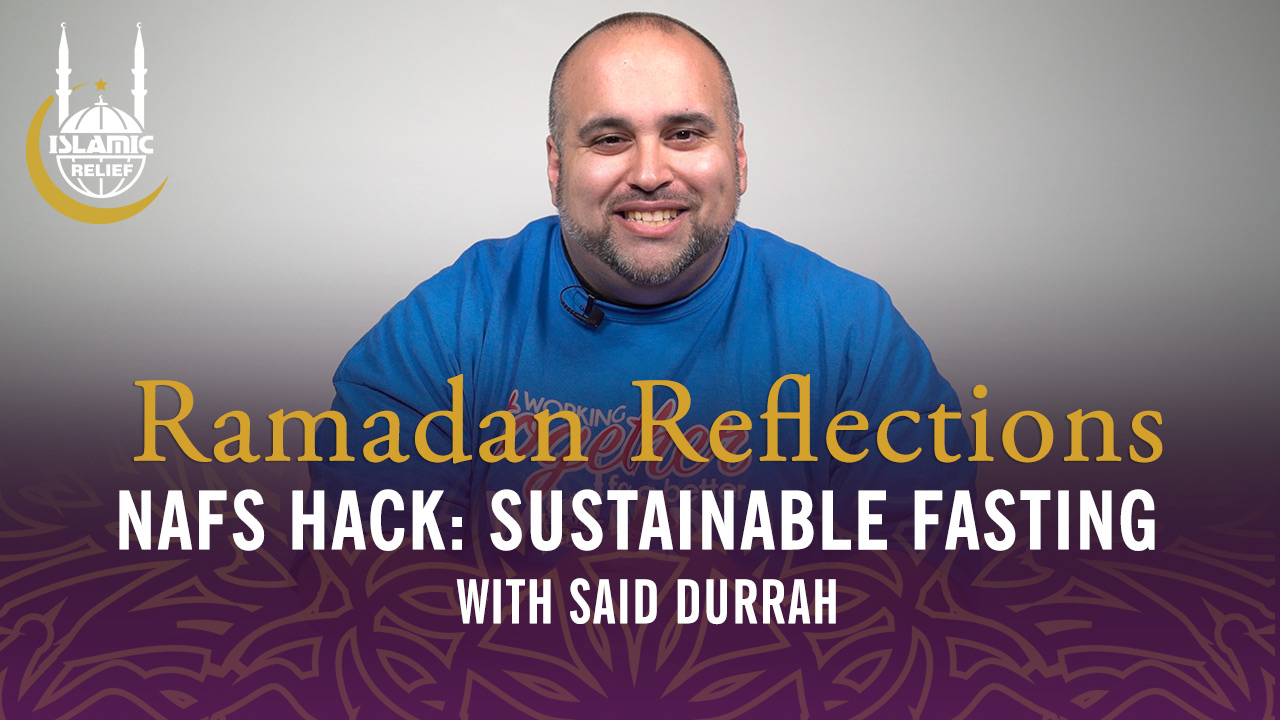Receptive United Nations Delegation Kept Islamic Relief On Its Toes
By: Syed M. Hassan

As a member of the Public Affairs Department for Islamic Relief USA, I, along with my colleagues, have the enviable task of presenting a good and accurate portrayal of our humanitarian work.
Granted, it’s not easy. People of influence can be hard to sway, and the traction you hope to gain is fleeting. Sometimes, you feel knocked down because your results fall far short of the effort you put in. But you gotta keep trying. As the late boxer and fellow Muslim Muhammad Ali said, “Ain’t nothing wrong with going down…it’s staying down that’s wrong.” You got to keep punching. Sooner or later, it will have an effect. The punch will land somewhere crucial.
What was a little surprising was when the audience you hope to win over – or at least convince that Islamic Relief USA is a finely run organization – is comprised of a group of fellow Muslims. These Muslims were part of a delegation of journalists and scholars who are participating in the United Nations Alliance of Civilizations 2017 Fellowship Program.
This esteemed group of some 15 individuals visited Islamic Relief USA’s headquarters in Alexandria, Virginia, on Tuesday, October 3. They hail from such Muslim-majority nations as Iraq, Egypt, Libya, Jordan, Saudi Arabia, Tunisia, and Morocco. Many of these countries are going through various degrees of instability, if not outright warfare.
The session, accompanied with the fine bagels, coffee, and pastries from the local Panera Bread, enabled the participants to receive an extensive overview of the work done by Islamic Relief staff and volunteers in some 40 countries.
They learned about the in-kind services program that sent some $55 million worth of pharmaceutical drugs last year. They also learned about our feeding and refugee programs.
But it was a little known and relatively small-scale teacher training program we operate in Ghana that produced some spirited, and unforeseen, discussion. The concern brought up by one of the participants, who just happened to be a broadcast journalist, was that such a program would indoctrinate the instructors in certain, perhaps extremist, philosophy.
When an answer provided by Islamic Relief USA officials was apparently insufficient to placate this participant, that participant asked a follow-up question. And, then, another one. Soon, other participants started to jump in, albeit after raising their hands and being called upon.
Pretty soon, we started getting other questions like why we feel we have to be so defensive against allegations of terrorism, especially if it’s been proven time and time again that the claims are a crock. Another participant asked how do you know you’re being effective in changing behaviors and making people more responsible and not just providing a “handout.”
For a moment, as I stood standing in the corner observing all this, I actually started thinking what poor, much-maligned Sean Spicer, President Trump’s former press secretary, had to go through….on a daily basis.
Yes, yes, I actually felt sorry for Sean Spicer, and started feeling so after Melissa McCarthy’s water gun squirting skit on “Saturday Night Live.” But on a slightly more serious note, Spicer had to deal with the ultra-aggressive Washington Press Corps, addressing a cavalcade of questions, and the inevitable follow-ups. It can be a daunting task and you could easily feel overwhelmed.
At the same time, though, you don’t want to throw in the towel. Just ask Muhammad Ali. You want to stay in the fight and counterpunch. That’s what you got to do if you want to win or stay on an even keel.
During the session, I was pleased to see Islamic Relief USA officials going to great lengths to provide informative answers, never wavering or buckling under the pointed questions. We gave informative answers, especially to the question about teacher training program and other projects in far-flung nations. We explained that staffers of the organization work extensively with local community leaders and non-governmental organizations who could best distribute or coordinate goods and services.
We explained that the mosques or masjids are more than just places of worship. They are multifunctional centers that provide social services, education, socialization opportunities, and health care, among other things. We assured them that regular reports are provided on grants and audits are conducted.
So, while I thought that some of these participants were unintentionally (or maybe intentionally) playing Iblis’s advocates, I also started thinking this spirited back-and-forth is very good. The participants were engaged and not bored, scrolling through their Smartphones. They wanted to know more about Islamic Relief USA. And, inadvertently, they were holding us accountable. They at least reminded us that while our programs are good, the execution could perhaps be improved.
Islamic Relief’s mission always has been to lift people up, not just through our providing resources, but to adopt behaviors, mindsets, and lifestyle that would breed success and productivity. We help people regardless of their religion. We don’t proselytize. We are just there to help.
I hope the participants came away thinking the same. You never know for sure, but as a great seasoned boxer will tell you, you got to keep throwing punches to stay in the fight…and maybe even win the fight.



